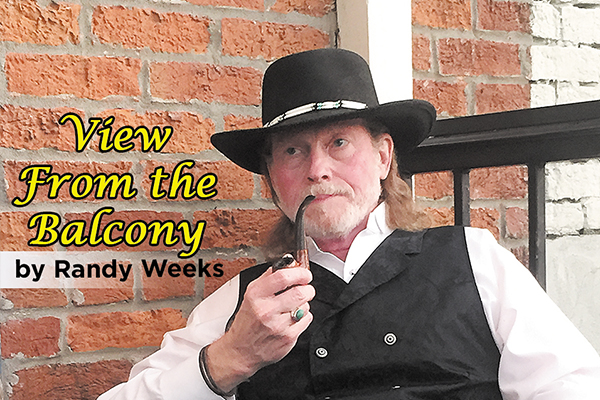
There’s a lot to be said about the good things that have happened as a result of the Coronavirus. Parents have spent more time with their children and their spouses, resulting in closer family ties. Friends have gained a deeper appreciation for friends they’ve not seen in a year. Because of the tragic deaths of so many we’ve been reminded of the fragility of human life and how important it is to make every second count. And with the international spread of the virus many have understood for the first time the importance of world-wide community and interdependence.
We’ve also had to learn to adapt, to think on our feet and outside the box, and to accept that, as the poet Robert Burns wrote,
The best laid schemes o’ Mice an’ Men
Gang aft agley,
An’ lea’e us nought but grief an’ pain,
For promis’d joy!
In light of that, we’ve witnessed our share of faux pas as people who were on video conferences forgot they were in their pajama bottoms or running shorts and stood up. Then there were those being interviewed on live TV who had a child or a spouse or a pet interrupt or just show up in the background.
For most of us the drastic changes that have been forced upon us feel pretty chaotic. But there are many who have always had a dozen or more tabs open on their internet browser at once. There are those who are constantly moving back and forth from task to task, not because they have ADHD, but because that’s what their work requires. There are people for whom the nine-to-five is a fantasy, as their projects are 24-7/365. They are the ones who hold Olympic medals for multi-tasking. For them many of the upheavals others have experienced are normal fare.
More than a few of these professional jugglers are appreciative of some of the changes COVID-19 has forced upon us. It’s not quite schadenfreude, in which people take delight at the misfortune of others. It’s more of a do-you-get-me-now? or a welcome-to-my-world experience.
An old college classmate of mine recently shared a Facebook post with a picture of Albert Einstein’s desk on the day he died (April 18, 1955). It was so littered with papers it was hard to find the desk. The post stated that, “Science has found a link between clutter and extremely high IQ. If your workspace is messy and cluttered, you’re not a slob…you’re most likely a genius!” Being a highly skilled clutterer myself, I’m glad to know that.
There’s a study I read that also shows that those who appear to live the cluttering lifestyle are more free-spirited, fun loving, spontaneous, enlightened, and good looking than their anal, banal, vainal counterparts. Never mind that I haven’t been able to locate my copy of the study. It’s there—somewhere on my desk beneath the stacks of songs I’ve written, fifteen drafts of my great American novel, my collection of The Far Side cartoons, and a partridge in a pear tree. I know. That’s where I put it when I was taking three phone calls, working online with a client, taking a delivery from Amazon Prime, making a spinach salad, polishing my boots, stomping out ants on my kitchen floor, sewing up a tear in one of my favorite vests, meditating, putting on deodorant, and surfing through Facebook posts.
Some folks have a propensity for criticizing others, looking down their noses and those who do things differently from them—including those who live a seemingly cluttered life. But who gets to determine what’s cluttered and what’s not? One person’s clutter is another person’s filing system. Call it “organized chaos.” Just because it looks like it’s in complete disarray doesn’t mean it is. You organize your way and I’ll organize mine.
This brings me to the point. It’s nothing new. Before we criticize someone else, we should walk a mile in their shoes. If we do that, we’re more likely to understand where they’re coming from. Most often there’s more than one way of doing things. Our way isn’t necessarily the “right” way. It’s just our way.
…and that’s the view from The Balcony.


